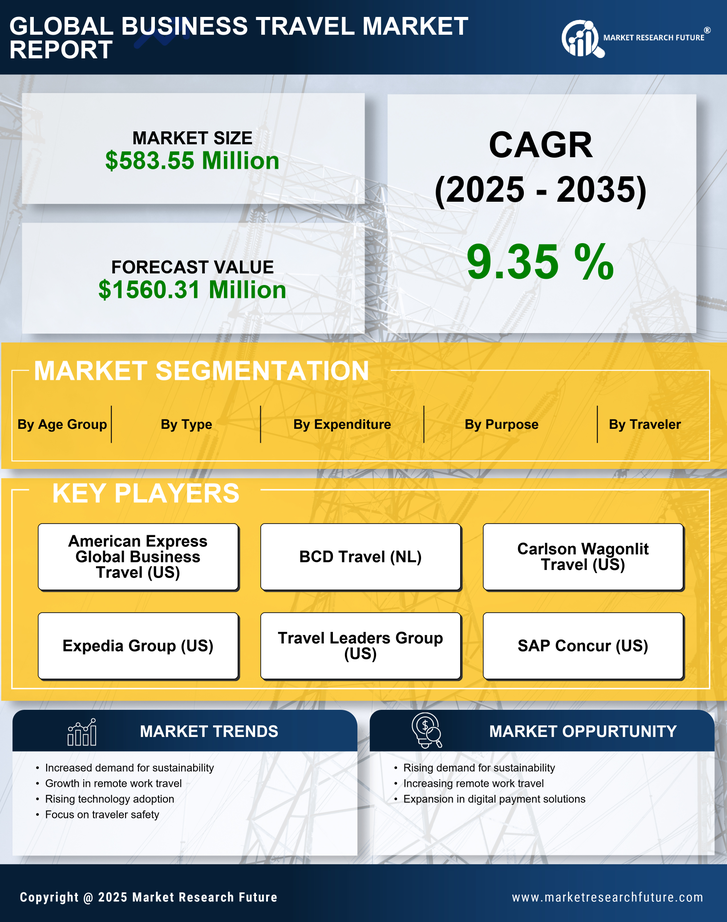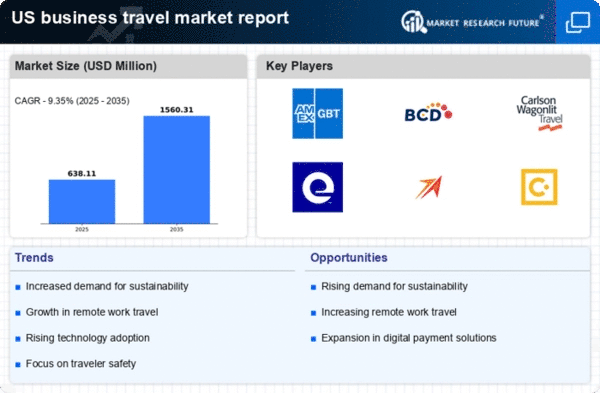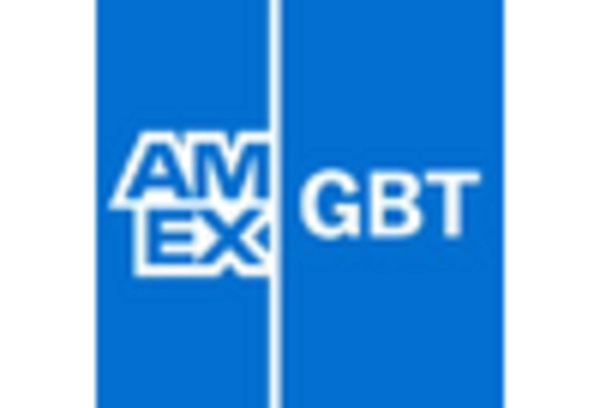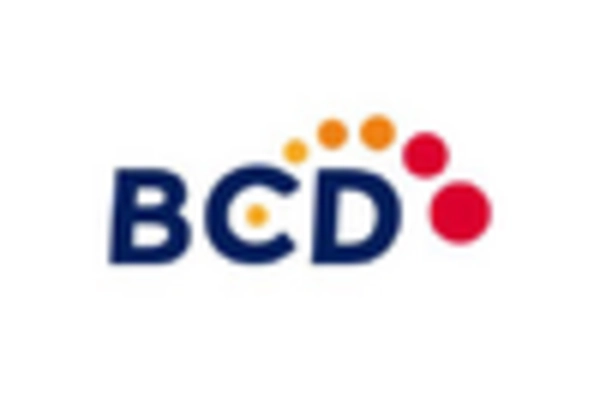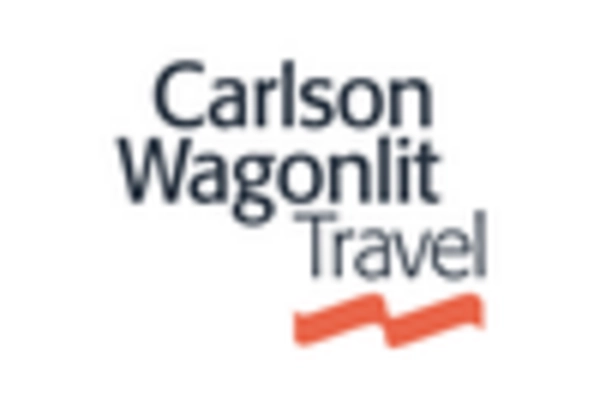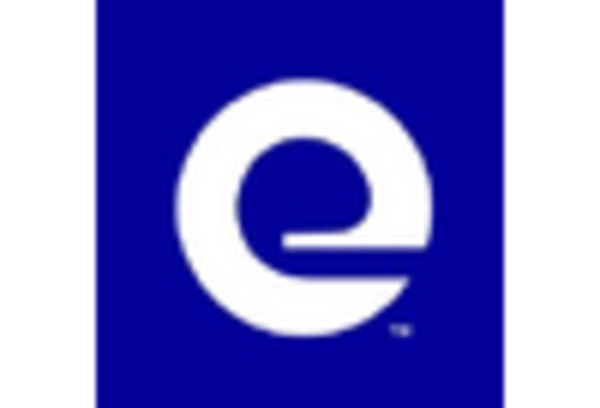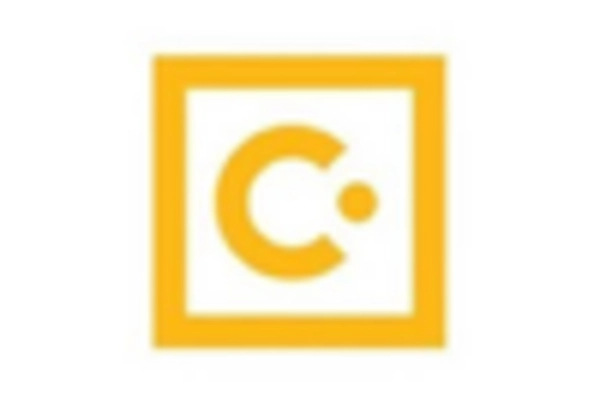Corporate Expansion Strategies
The ongoing trend of corporate expansion strategies appears to be a pivotal driver for the business travel market. As companies seek to penetrate new markets and enhance their competitive edge, the demand for business travel services is likely to increase. In 2025, it is estimated that corporate travel spending in the US could reach approximately $200 billion, reflecting a robust growth trajectory. This expansion necessitates frequent travel for meetings, conferences, and client engagements, thereby propelling the business travel market forward. Furthermore, as organizations diversify their operations, the need for face-to-face interactions remains critical, suggesting that the business travel market will continue to thrive in tandem with corporate growth initiatives.
Rise of Remote Work and Hybrid Models
The rise of remote work and hybrid models is reshaping the dynamics of the business travel market. As organizations adopt flexible work arrangements, the need for occasional travel for team meetings and client interactions remains. In 2025, it is expected that 40% of companies will maintain a hybrid workforce, which could lead to an increase in short-term business trips. This trend suggests that while the frequency of travel may fluctuate, the necessity for in-person collaboration will persist. Consequently, the business travel market may adapt to cater to this evolving workforce structure, offering tailored solutions that accommodate the needs of remote and hybrid employees.
Evolving Travel Policies and Compliance
The evolution of travel policies and compliance regulations is influencing the business travel market significantly. Organizations are increasingly adopting more structured travel policies to ensure cost-effectiveness and adherence to compliance standards. In 2025, it is anticipated that 70% of companies will implement stricter travel guidelines, which may include preferred vendor agreements and travel management systems. This shift indicates a growing recognition of the need for accountability in travel expenditures. As companies refine their travel policies, the business travel market is likely to see a rise in demand for services that align with these new compliance requirements, thereby shaping the landscape of corporate travel.
Investment in Travel Technology Solutions
Investment in travel technology solutions is becoming a crucial driver for the business travel market. Companies are increasingly leveraging technology to streamline travel management processes, enhance traveler experiences, and improve cost efficiency. In 2025, it is projected that spending on travel technology will grow by 20%, reflecting a strong commitment to innovation in the sector. This investment may include the adoption of mobile apps, AI-driven booking systems, and data analytics tools to optimize travel planning. As organizations prioritize technological advancements, the business travel market is likely to experience a transformation, with enhanced services that cater to the evolving needs of corporate travelers.
Increased Focus on Networking Opportunities
The heightened emphasis on networking opportunities is emerging as a significant driver within the business travel market. As professionals recognize the value of building relationships, attending industry conferences and trade shows has become essential. In 2025, it is projected that attendance at such events will increase by 15%, indicating a strong inclination towards in-person interactions. This trend suggests that companies are investing more in travel budgets to facilitate employee participation in networking events, which are crucial for business development and collaboration. Consequently, the business travel market is likely to benefit from this growing demand for networking, as organizations prioritize face-to-face engagements to foster connections and drive growth.
